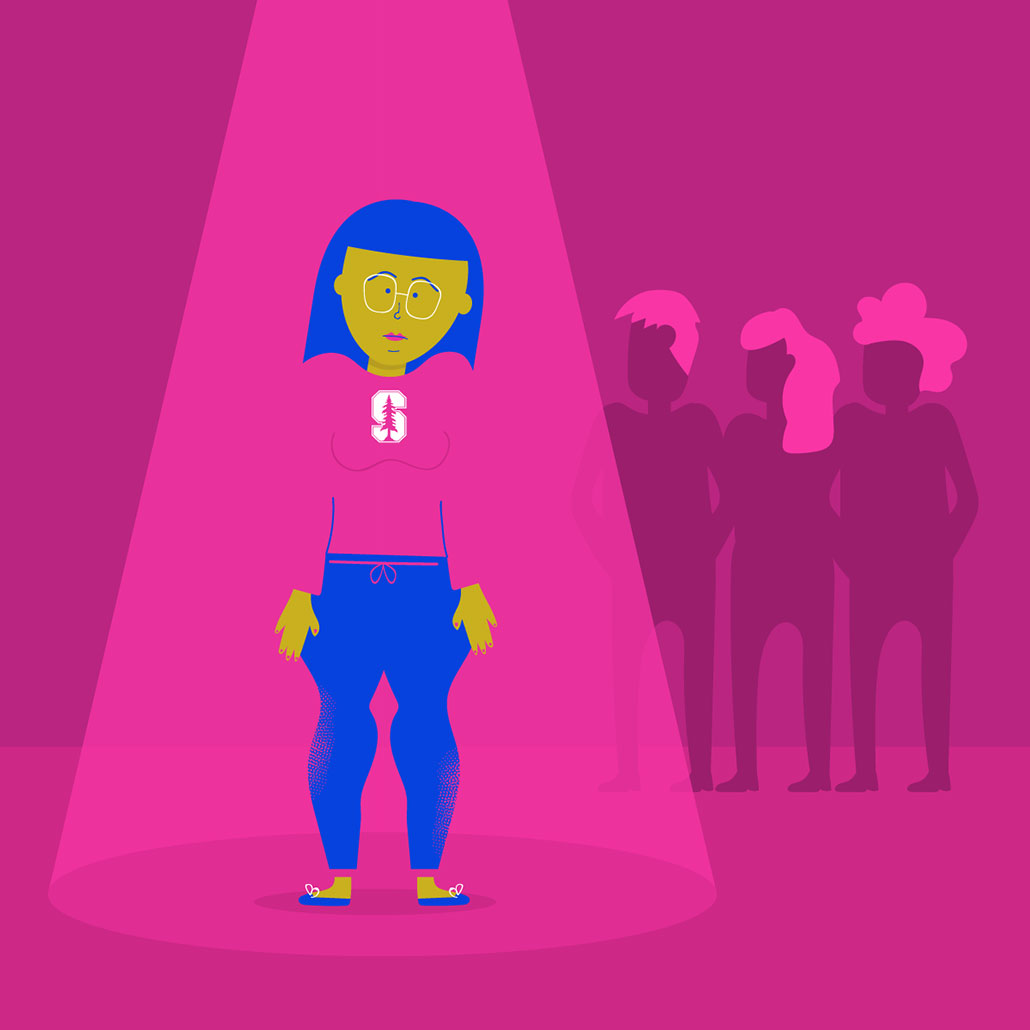I was never more lost than when I arrived as a frosh at Stanford. Every moment—walking down the hall to brush my teeth, hearing the chatter around me before a lecture began—felt like a test of strength. How long could I go without my people? Without my places? I was exhausted—and angry at my loneliness until I found my way.
Dr. Laura Roberts, chairman and professor of psychiatry and behavioral sciences, knows exactly what I was feeling. She founded The Belonging Project in 2016 in an effort to understand the role that belonging plays in mental wellbeing and to foster a culture that helps students at Stanford and elsewhere assimilate. In short, I felt that I didn’t belong. I had left my old communities and hadn’t yet found new ones. And community is essential to an individual’s wellbeing.
'Humans are social animals, and we all need help from one another in a wide variety of ways . . . '
The editors at Stanford magazine have been thinking a lot about experiences like mine since we decided to publish a collection of stories about community. One of our first questions was, “What is community?” After all, we see the word used everywhere. (Heck, apparently I’m part of an Amazon community. I thought the whole point of online commerce was to avoid human interaction.)
The Belonging Project’s program manager, Kyle Lane-McKinley, says, “A community is the people to whom one can turn for help, and, in turn, those who can reasonably expect that favor to be returned.
"Humans are social animals, and we all need help from one another in a wide variety of ways—from basic needs of food and shelter to cultural, spiritual and psychological help.”
So while people who use a social network, share an interest or live in a specific geographic region can certainly constitute communities, Lane-McKinley says a great community is one in which inclusion is unconditional. Those communities foster resilience and an enduring sense of belonging in their members.
But communities are also vulnerable and subject to disruption. And soon we wondered how disagreements or dissension can threaten a community’s cohesion. What goes through a person’s mind when doing the best for themselves means leaving a community, possibly forever? Can we return to a community and ever hope to fit in again? And how do communities survive events that threaten to tear them apart?
'Many, many people in our society today experience a thwarted sense of belonging and a lack of community . . . '
Claude Steele, professor emeritus of psychology, teaches an introductory seminar called The Science of Diverse Communities. He believes the key to building and sustaining community is trust. If it’s a diverse community, establishing that feeling may require intentional effort. “[Get] comfortable talking about our identity differences. . . . Be a person who is open to hearing about another person’s experience. Life [will] be a lot more fun and more interesting.”
Miserable start aside, my freshman experience ended well; I even came away with a community that I value to this day. Many other communities have come—and gone—in the years since. But I wish I had known at the time that I wasn’t the only one searching. “Many, many people in our society today experience a thwarted sense of belonging and a lack of community, but such experiences, by their very nature, can tend to leave a person feeling like they are the only one going through such troubles,” says Lane-McKinley.
We are thrilled to begin our exploration of community. Over the next several months, we’ll publish more great stories in our collection. If you want to be in the know when there’s new content, join our e-alert list.
I hope you see your own experiences reflected in a story here. I hope you learn about a new community or engage with a new perspective on an issue. And I hope we think of more synonyms for “community,” because after using it 17 times in an essay, it’s starting to sound weird.
Summer Moore Batte, '99, is senior digital content editor at Stanford.



